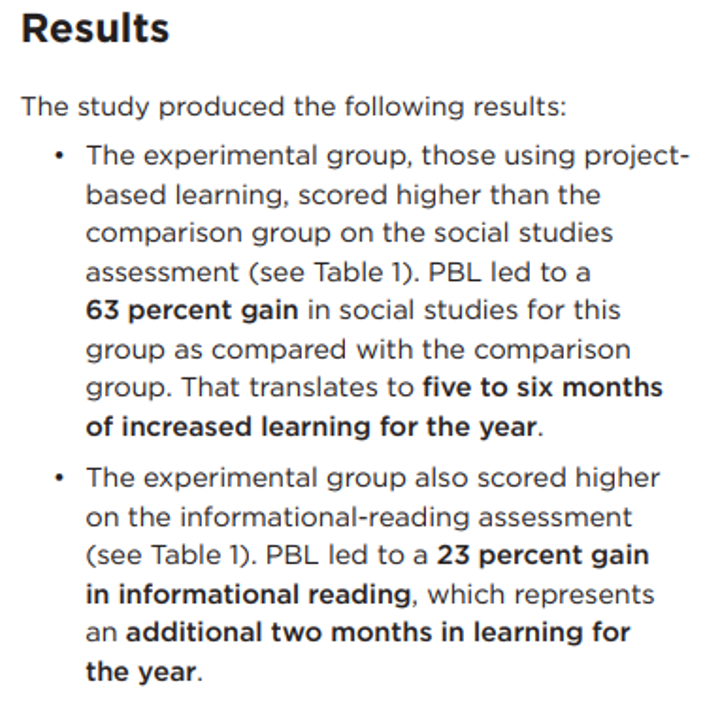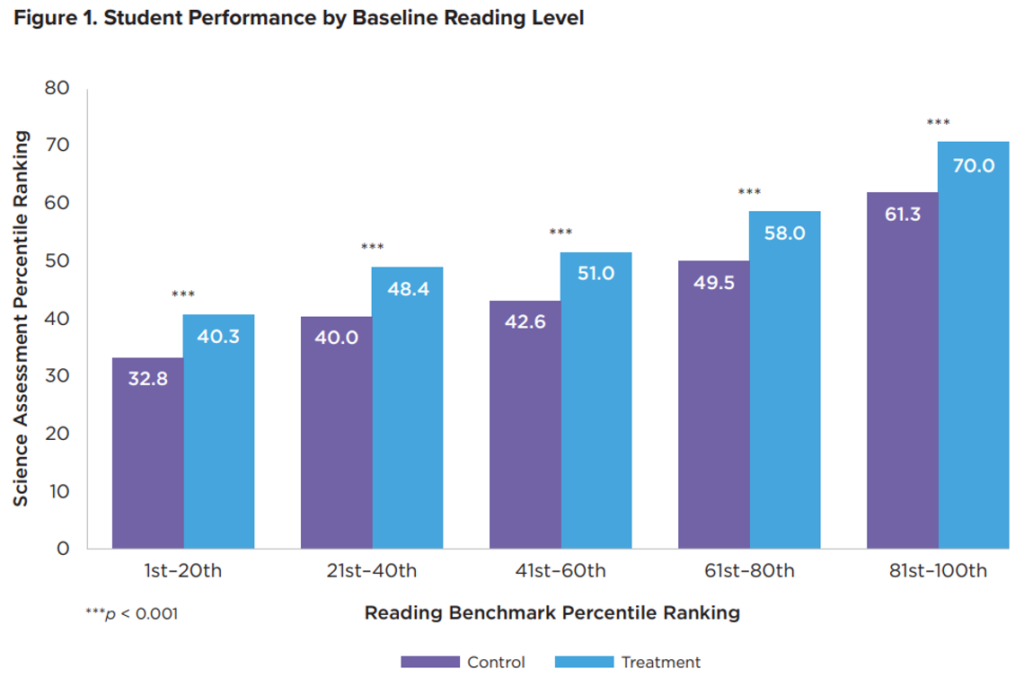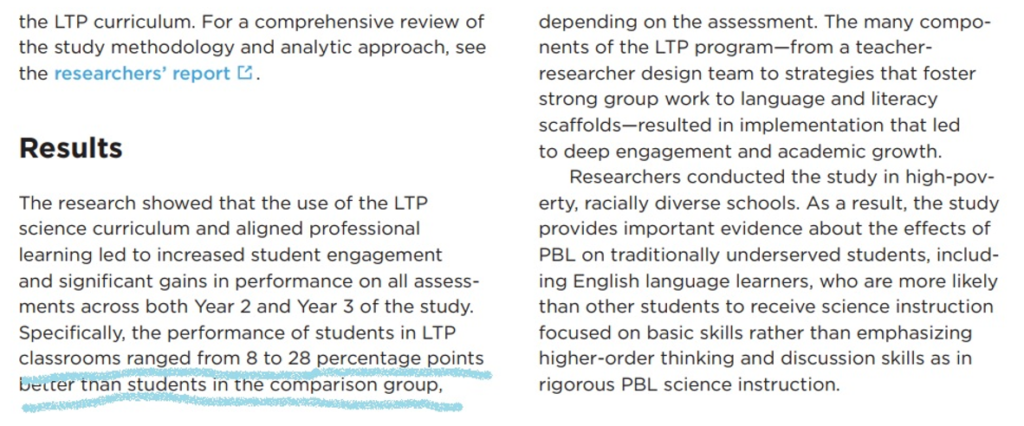 Back in February, the George Lucas Educational Foundation released four studies using random assignment and matched comparison studies on project-based learning. You may have missed the release, distracted as you were by a global plague, but cumulatively, these studies seem very important.
Back in February, the George Lucas Educational Foundation released four studies using random assignment and matched comparison studies on project-based learning. You may have missed the release, distracted as you were by a global plague, but cumulatively, these studies seem very important.
The studies covered different subjects and grade levels, including Advanced Placement exams, middle school science, social studies and literacy at low-income schools, and social and emotional learning. The Lucas Foundation sponsored research with academics at the University of Southern California, Stanford University, the University of Michigan and Michigan State University, among others.
You can see all four studies here.
Three of the four studies used random assignment methods. One used a matched comparison methodology. All found positive learning gains associated with project-based learning.
How positive? Well let’s let the studies speak for themselves.
On social studies and literacy in low-income schools the random assignment study found:
 Here are some of the main findings from the science study, which showed statistically significantly higher performance across initial benchmark groups based on reading ability.
Here are some of the main findings from the science study, which showed statistically significantly higher performance across initial benchmark groups based on reading ability.
 The matched comparison study on middle school science also found sizeable positive results.
The matched comparison study on middle school science also found sizeable positive results.

The Advanced Placement study found the experimental group participating in project-based learning was 8% more likely to score 3 or better in the first year of the program and 10% more likely in the second year. In combination, these studies show strong results across a variety of different subjects and types of students.
Project-based learning also happens to be part of the “secret sauce” driving micro-schools. As I wrote last year for the American Enterprise Institute:
A set of promising new schooling techniques has gained traction during the pandemic, which could bring joy back to education. Combined, they could create new opportunities for families and educators to make education more productive, more centered on family preferences, and even more fun for students and educators.
It’s great to see research showing that project-based learning can be very effective. I’ve seen with my own eyes micro-schools that have made project-based learning fun for both students and teachers. A new hope arises from a very old innovation strategy: combining pre-existing techniques or technologies to create something new.


